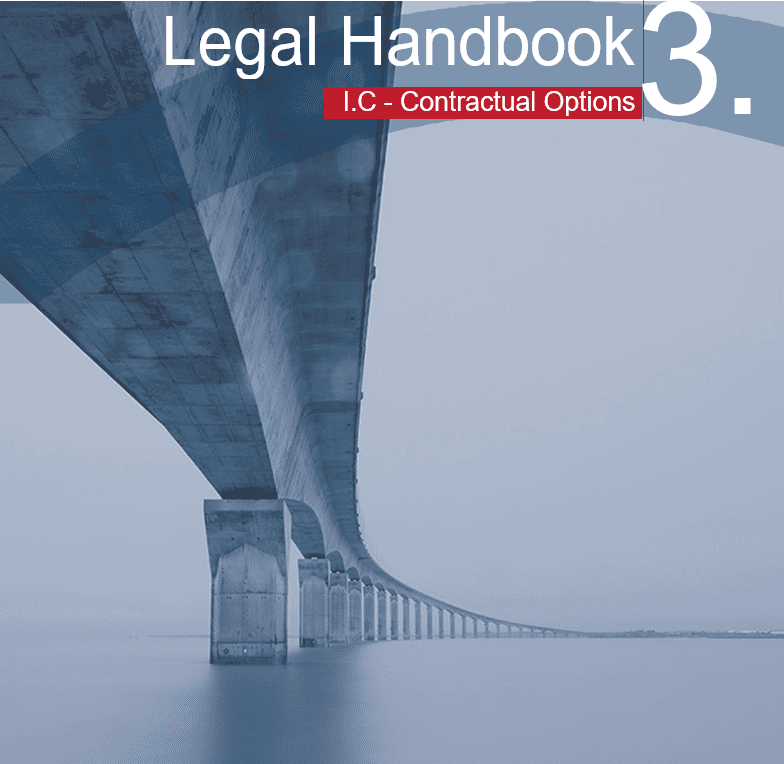With Chinese consumers now expressing a demand for quality products and services, the number of foreign brands entering China via the franchise model continues to grow.
As it makes reforms to the legal framework for franchising activities, the People’s Republic of China has largely followed international standards although some unique characteristics, such as the filing procedure with Chinese authorities, have been added. If you do not take these China-specific rules into account, you may face delays or cancellation of your franchise contract.
What are the regulations related to franchising activities in China?
Commercial franchising only emerged in China in the early 1990s. At that time, foreign investments were restricted and governing laws on franchising non-existent. The solution was to set-up a limited liability joint venture with a local Chinese partner followed by establishing branches in various Chinese cities. In 1997 the Chinese government issued its Interim Measures on Regulating Commercial Franchise Operations to promote the booming commercial franchise market.
With its accession to the World Trade Organization in 2001, China agreed to permit foreign investment in franchising and promised to reform its framework.
The latest regulations, the Regulations on Administration of Commercial Franchise promulgated by the State Council (the “Franchise Regulations”) issued in 2007, have been applied equally to foreign and domestic franchisors.
When do you risk falling into the category of franchising agreements?
As franchising is a broad concept in China, many distribution agreements, such as “commission/affiliation”, agency contracts and so on, run the risk of being categorized as franchising agreements.
According to the Franchise Regulations, the term “commercial franchise” refers to such business operations by which an enterprise owning a registered trademark, corporate logo, patent, know-how or any other business resource (the “franchisor”) licenses such business resources to other business operators (the “franchisee”) by way of a contract. The franchisee operates the business under the uniform business model in accordance with the contract and pays a franchising fee to the franchisor.
Currently, several broad terms are used to qualify the franchise under the PRC regulations, including business resource, uniform business or management model, and financial consideration.
What are the special requirements for entering into a franchise agreement?
Foreign operators can launch franchising operations in China either through cross-border franchising or by setting up a company in China.
The Franchise Regulations require a period of minimum experience. Prior to 2007, the franchisor was required to have established and operated two direct outlets in China at least one year before entering into a franchise agreement. However, the latest Franchise Regulations removed “in China” from the requirements to offer more favourable licensing terms to foreign companies.
Today, the foreign franchisor must own and operate two units that can be located anywhere in the world, including its own country, at least one year before entering into a franchise agreement.
The regulations also state that the Chinese franchisee must own and operate units for at least one year before it can sub-franchise to others.
China revised its guidelines on foreign investment so that franchising is no longer classified as a business in which foreign investment is restricted. However, in the case of an onshore presence with a foreign-invested commercial enterprise, the franchisor must also have a business scope that allows franchise activity. If not, the company must apply for an extension of its business scope with the competent authority.
Why is information disclosure so important?
The 2007 Franchise Regulations require the franchisor to provide the franchisee with information, in writing, related to the franchisor and the franchise business operations. The information and the contract must be provided at least 30 days before the contract is signed.
The information disclosed by a franchisor before signing the franchising contract includes specific financial, legal and commercial information such as registered capital, franchising activities, intellectual property rights, and the investment budget for the franchise business, financial reports and audit reports for the last two years, and any involvement in litigation over the last five years.
What are the risks of not filing your franchise agreement with the Chinese authorities?
Any new franchise network set up in China must file with the competent commission of commerce within 15 days after the first franchise agreement is signed. The Measures for the Administration of the Filing for the Record of Commercial Franchises issued in December 2011 details the required filing procedures.
The major risk of not filing is contractual instability. In the case of a dispute between the franchisor and the franchisee, the franchisee may report any incompliance with the Chinese franchising regulations to the authorities and may also file a lawsuit claiming termination of the contract, refund of deposit and license fee, and other compensations.
Are these regulations actually applied?
We are aware of several cases of judicial requalification on distribution agreements, which include terms that regard the license of business resource, payment of license fee or deposit, uniform business model, and so on, as franchising agreements.
All these lawsuits were brought by franchisees (distributors) against franchisors (suppliers). The court, after reviewing the “distribution agreement” and conducting relevant investigations, finally identified the disputed business as a franchise business. Judgments were rendered to terminate the “distribution agreements” with the deposit/license fee to be refunded to the distributors.
In addition, the franchisor may also have to pay a fine for breaching Chinese regulations.
Why can trademark registration issues postpone your contract?
The trademarks of the franchising activities must be registered in the PRC and the franchisor must make sure the Trademark Certificates are at its disposal. As part of the process of trademark registration in China, the Chinese Trademark Office automatically issues a Chinese Trademark Certificate in Chinese.
An extension to trademark protection in China via the World Intellectual Property implies that the applicant must ask for this certificate at the end of the procedure. This adds another three to five months to the registration process. A copy of the trademark certificate is required when filing your trademark license contract with the Chinese authorities.
If the franchisor is not the owner of the trademark, the trademark license contract between the owner and the franchisor must be registered before the Chinese Trademark Office, a process that will take 4 to 8 months for approval. The Registration Certificate of the trademark license contract is a required document for the filing of the franchise agreement.
How can the franchisor protect its business?
Before establishing a franchise network, the franchisor must ensure with a PRC counsel that its interests are properly protected:
- Make sure your business scope complies with Chinese regulations and includes the retail operations by means of franchising;
- Make sure you provide the proper information to franchisees. Improve security by obtaining the proper declarations from the franchisees in the contractual documentation and protect disclosed information by proper registration and proper non-disclosure contractual documentation.
- Execute a detailed franchising agreement in accordance with market practice; make sure your contractual documentation contains the stipulations requested in accordance with local regulations, including franchising regulations and price fixing regulations.
- Provide standard documentation requested by malls and landlords allowing your franchisee to open their shops that do not conflict with the main contractual documentation.
For more information, please contact:
Bruno Grangier












